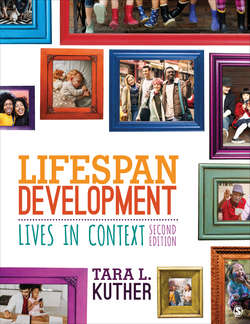Читать книгу Lifespan Development - Tara L. Kuther - Страница 368
На сайте Литреса книга снята с продажи.
Evaluating Vygotsky’s Sociocultural Theory
ОглавлениеAlthough relatively unknown until recent decades, Vygotsky’s ideas about the sociocultural nature of cognitive development have influenced prominent theories of development, such as Bronfenbrenner’s bioecological theory (Bronfenbrenner, 1979). They have been applied in educational settings, supporting the use of assisted discovery, guiding children’s learning, and cooperative learning with peers.
Similar to Piaget, Vygotsky’s theory has been criticized for a lack of precision. The mechanisms or processes underlying the social transmission of thought are not described (Göncü & Gauvain, 2012). Moreover, constructs such as the zone of proximal development are not easily testable (Wertsch, 1998). In addition, underlying cognitive capacities, such as attention and memory, are not addressed. It is understandable, however, that Vygotsky’s theory is incomplete, as he died of tuberculosis at the age of 37. We can only speculate about how his ideas might have evolved over a longer lifetime. Nevertheless, Vygotsky provided a new framework for understanding development as a process of transmitting culturally valued tools that influence how we look at the world, think, and approach problems.
